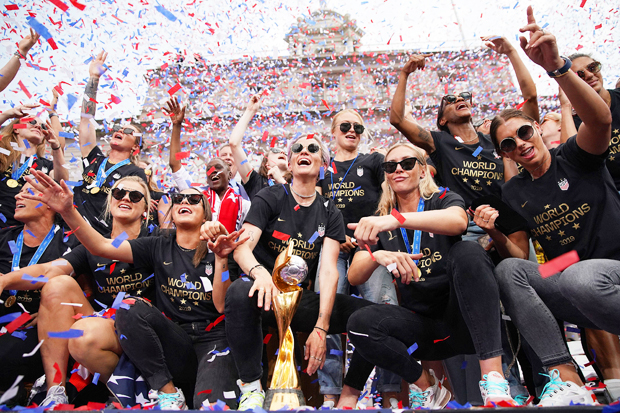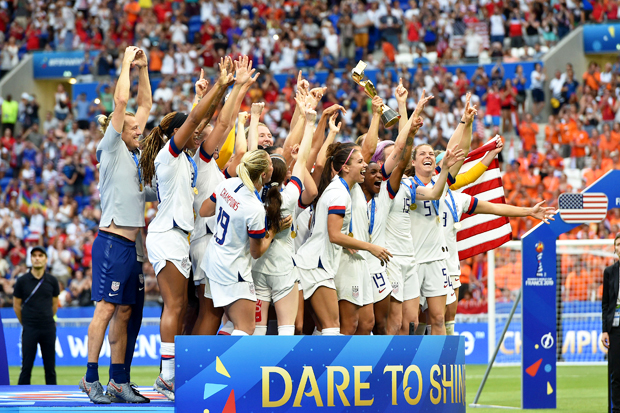
“Thank you to so many who have come before and who are here now. Incredibly proud today.,” said U.S. soccer icon Megan Rapinoe on Wednesday (May 18), the same day that the United States Soccer Federation announced a new collective bargaining agreement that established equal pay for the U.S. women’s national team. Megan, 36, retweeted a threat by Becky Sauerbrunn that gave thanks to all the women “who led and continue to lead the fight for equal pay across sports and everyday life.”
. @beckysauerbrunn ALWAYS says it best. Thank you to so many who have come before and who are here now. ❤️ Incredibly proud today. https://t.co/Xt7vsLXO8c
— Megan Rapinoe (@mPinoe) May 18, 2022
Megan’s gratitude comes after a long battle for equality. “To finally get to the point where on every economic term it’s equal pay, I am just really proud,” USSF president Cindy Parlow Cone said with the announcement of this new collective bargaining agreement, per the Washington Post. The USSF said the CBA made the United States the first country to pay its women soccer players the same as the men.

“It’s going to be game-changing for what women’s football looks like in general,” women’s national team forward Margaret Purce said of the new CBA. “It’s historic, and I think it’s going to trigger a lot of other things in the sport, not just in the United States but globally.”
The CBA ensured equal playing venues, staffing, charter flights, and hotel accommodations for both teams, a major point of contention as the women argued that they played on sub-par facilities. The CBA will also end guaranteed salaries for the women’s players. Instead, the USSF will pay them at the same rates as the men for achievements (roster selection, team performances, etc.) The USSF did not pay the men a salary. The teams will also equally share a portion of the USSF’s broadcast, partner, and sponsorship revenue. Both teams will receive a share of the revenue from tickets sold at USSF-organized home matches. This also means that both teams will receive bonuses for sold out games.
Going forth, the U.S. teams will also pool the World Cup bonuses received from FIFA and split them equally. The U.S. Women’s team has won three World Cups in the past thirty years, while the men’s team has only gotten as far as the quarterfinals (2002). The USMNT failed to qualify for the 2018 World Cup but recently secured a spot in the 2022 competition. Despite their poor showings, the U.S. men earned higher World Cup bonuses than the four-time champion women’s team.

For example, the 2022 men’s World Cup winner in Qatar will receive $42 million of FIFA’s $440 million total prize money, per the Washington Post. If the U.S. men’s team survives the group stage and makes it to the round of 16, they’ll get $13 million. That’s more than three times what the U.S. women received for winning the tournament in 2019. The champs got $4 million out of $30 million in overall prize money. FIFA claims that the men’s tournament generates substantially more revenue than the women’s, ergo why the men get bigger bonuses.
The U.S. Women’s National Team sought more than $66 million in back pay, arguing that the USSF had not paid them fairly. Tin 2020, a district judge ruled that the women had agreed to a different pay structure than the men’s team and had overall earned more money than them. The USSF also argued that if they paid the women the same bonuses they gave the men, it would bankrupt the organization. The U.S. women settled their lawsuit against the USSF in February for $24 million.
“There were hard conversations and challenging times and, yes, there were moments I thought it was all going to fall apart,” said Cindy Parlow Cone. But I am really proud of where we’ve landed, proud of the men’s team for what they’ve done, proud of the women’s players who continue to carry the torch for all women.”


